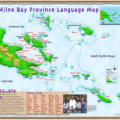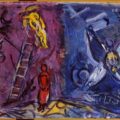“The Lyric Self is the Political Weapon”: Solmaz Sharif’s Look

Part of being an exile, a nomad, is that the most significant moments in your life pass by in places where you have no memories and no past.
—Shirin Ebadi , Until We Are Free: My Fight for Human Rights in Iran
Solmaz Sharif’s debut poetry collection, Look, takes on a project of immeasurable dimensions and violent incongruity, “a poetic rewrite of the U.S. Department’s of Defense’s Dictionary,” as she described the project in the Kenyon Review. By imposing her narrative on the excised words, by restoring language to its natural function and stripping it of its dehumanizing power, Sharif has overridden and overwritten the intended function of the dictionary—to obscure, to misuse, to misrepresent.
“My own experience as an Iranian born in Turkey beneath the long shadow of the Iran-Iraq War has always been an impetus behind this project,” she explained in the same interview. “As an Iranian abroad, this experience was quintessentially American—the warfare was happening over there. Less American, perhaps, was being from there. Regardless, the being from an elsewhere forced me to cultivate an image, as many have, of the home they have left. An imagined place. This imagination-building happened to coincide with a war that killed 1,000,000 people.”
Sharif’s genre-bending debut is literature of exile and audacious reimagining. Look examines loss of country, loss of language, loss of culture, loss of family, defining new expressions for age-old subject matters of war and elegy. With a language as restless and elided as her experiences, she writes from a border land, in between two countries and two cultures, as observer, as “other,” as woman (daughter, granddaughter, niece, lover) and from a place of ambivalence and constant inquiry.
The complex narrative arc of the book begins by calling out deceptive, coercive politics and language used to inflict both physical and psychological harm, concluding with a lyric moment of imaginative reunion, only to turn once again to terror and loss. The small child crying is both persona and self.
: we have learned to sing a child calm in a bomb shelter
: I am singing to her still
In Reflections on Exile (1984), Edward Said notes, “For an exile, habits of life, expression or activity … inevitably occur against the memory of these things in another environment … (functioning) contrapuntually.” Look revises memory to unsettle the contrapunction, disorienting readers with non-linear narratives and dystopian landscapes of war and dislocation, only to reassemble these disparate parts of the self within the physical body. Exile is a permanent inner state not displaced by the immigrant status; the body is an uneasy alliance between these two consciousnesses at odds with each other.
The collection’s title poem, “LOOK,” speaks in a voice of righteous invective, disavowing popular opinion, and it provides all the information that a reader needs to navigate the rest of the book. Sharif establishes her major themes: corrupted language, war and its damages (present and past), loss and death, prejudice, xenophobia, binary otherness, and extended family. This constellation of family members stands at the core of Look. The family in exile is always seeking connection with those who are not present. Exile is, as Said puts it, a state “produced by human beings for other human beings; and that like death … has torn millions of people from the nourishment of tradition, family and geography.”
Inhibited by distance and in some cases prohibited from making contact, the absence of loved ones reminds the exile of their status. Bomber pilots “LOOK down from their jets, and “declare my mother’s Abadan block PROBABLY DESTROYED.” This particular neighborhood in the city was the site of a year-long siege beginning the Iran-Iraq War, in which the speaker’s uncle is killed; Sharif’s elegy to her uncle—dead before her birth—occupies a third of the collection.
The poem employs legalese, the insistent anaphora of “Whereas,” except in the opening line, “It matters what you call a thing….” and the concluding four lines. The first two repeat the phrase, “Let it” and the second two repeat the phrase “Let me” moving the reader from the impersonal pronoun to the immediacy of the first person, understood to be the speaker, understood to be the author. The exile comes out of hiding. By using the legal form as the container for the poem, the poet references any number of possible legal outcomes, the trial described in the poem, past encounters with immigration officials, the questionable legality of U.S. intervention in the Middle East. The reader is consumed by a fog of double speak and innuendo.
In the dulled edges of shadow, the speaker’s lover finds her exquisite while a man outside the 2004 Republican National Convention attacks her. “Whereas, Well if I were from your culture, living in this country … I would put up with that for this country.” The speaker’s right to exist in the United States, is justified by the United States acts of unlawful torture Over There. Mass executions are all right over there as well, “…its iraq you know its iraq. its kinda like acceptable to see that there and not—”
Is it worth wondering, if in the sixteen seconds it takes between “the trigger pulled in Las Vegas and the Hellfire missile landing in Mazar-e-Sharif … Did we hit a child? No. A dog. they will answer themselves …” It is simpler not to ask the question in the first place, since there really is no question. If a real question existed, then doubt would also exist, and those two things cannot exist together in this disordered world, where time makes its own rules and all actions, personal and political, are subject to observation and censorship. A child, a dog—the question becomes a mere (horrifying) formality.
The act of looking cannot be separated from the ideology of the looker. The looker will never change. “Whereas, You mean I should be disappeared because of my family name? And he answered Yes. That’s exactly what I mean, adding that his wife helped draft the PATRIOT Act;” By this logic, the speaker’s family should endure exile twice, once from their country of origin and again from their country of immigration. Not just exile, but disappearance. A child? A dog. It becomes radical to assert that yes, it does matter “what you call a thing.” This notion has become painfully clear in 2016, in the vapid preening word-salad of the charismatic demagogue, in the obfuscation of white nationalism under Orwellian non-speech, in the way uncontested hate speech breeds dehumanizing violence.
“DECEPTION STORY,” from the second section of Look, focuses on the use of the Department of Defense’s Dictionary of Terms misuse of language. It’s heavily enjambed short stanzas or statements address the topic of exile. The terms all begin with the letter “d” as if the poet is playing the innocent childhood game of naming items that start with a particular letter. The sonic effect of the repeated syllables of “dis” crowd together like a chant. The effects of distance act as a “funny drug and used to make me a DISTRESSED PERSON … My DISTRIBUTION … over the globe debated and set to quota” as if the speaker were a commodity good, before shifting to an intimate scene in a backyard pool: “My body breaking the chlorinated surface makes it, momentarily my house … my dress-rehearsed DOCTRINE of pool boys and ping-pong.”
“Over here, DOLLY, an agent will call out … After explaining what she will touch, backs of the hands at the breasts and buttocks, the hand goes inside my waistband and my heart goes DORMANT.” The objectification and invasion of the female body using a pejorative term cannot be read now without reference to the president elect’s taped admissions of sexual assault. It draws an analogy to U.S. military incursions as well. The self and country are both conflated, both abused. This country denies the speaker everything that is commonly associated with home—dignity, safety, privacy—so the United States remains “a mere DRAFT of home,” a temporary version of the real home that is unobtainable. This home, in the chilling final line, is “… snarling, what I carve of it alone.”
The poem “STATELESS PERSON” speaks of the anguish of the exile, isolated from extended family, with communication difficult, if not impossible. Months after the fact, the news of yet another death would reach Sharif’s family. The earlier compressed, elided, imagistic narrative has expanded into stanzas, with complex syntax, united by a refrain, its variations, and an explicit narrative.
because we were
exiles, were vagabonds, fugitives, past Sierras,
pastoil rigs
in Texas…
here where the dead can
not reach us
The speaker recalls her grandmother, the pictures on the mantle, the grains of sugar the speaker would lick with a wet finger, and longs to hear the sound of her grandmother’s dentures.
I claimed her sugar bowl, white floral veil she prayed in,
to
take once her
daily, daily things….
The effect of the repeated and fractured refrain reinforces the finality of absence.
I have no ear
for the mu
sic here,I think it’s––mu
sic will not reach
us here…
can’t hear that
music here
Look’s final section is the long elegy, “Personal Effects,” written to and for the speaker’s dead uncle, Amoo. Sharif places this poem after one of the most graphic and insistent poems that relentlessly catalogs the cost of death. With anaphora as inescapable as bullets, this poem, like no other, enacts disembodiment. “And alive we bring up the hands to hold together his neck / And I place in his hands his head….” The poem takes place in a dream universe. The speaker is momentarily reunited with her uncle in an airport. “Hello you’d approach / in the international terminal. / I’d be disheveled / from the search, raw.” This airport is a liminal space of transition and possibility, of flight and landing, of touching the ground, of embracing the beloved and speaking the language of home. Here, exile is denied, the sought after kinship acknowledged. However the use of the conditional tense, “we would have had” undercuts the possibility of a connection, even an imagined one.
Language and its expectations
teaches us
about the relationshipwe would have had…
Or Belah. As in you say
Do you know who I am
and I respondingthough you could be a number of brothers
from our albums,
Yes…
In the second version the uncle is described as a “haji” a Muslim who has made the pilgrimage to Mecca, one of the five pillars of the faith. The doves are both a religious and romantic symbol in ancient Persian culture. The second poem makes a connection to the deep past, to faith and culture that is unavailable to the speaker in the present.
Hello. Do you know who I am?
Yes, I tell you. I half-lie,
Yes. An address, beloved
lit
a rooftop of dovescrouched to launch
Yes, Amoo.
How could I not?
The moment of transcendent lyricism is followed by a Coda. Sharif writes in DRONE, a chant, a lament for an unrecoverable world. Ironically the term drone does not appear in the 2015 edition of the Dictionary, since the term has entered the English language “…in other words, the military definition is no longer a supplement to the English language, but the English language itself.”
We ignore the misuse of language at our peril, the invasions of mind that mirror invasions of land. Sharif shows us the consequences of that collective failure. Look demonstrates not only that language is an integral part of the military arsenal but also that poetry remains a subversive act, a refusal to submit to despair or amnesia. In an interview with Divedapper, Sharif says, “The lyric self is the political weapon I have as a poet. My subjectivity is maybe the most potent force I have in interacting politically on the page.”
About Eve Linn
Eve F.W. Linn received her M.F.A. in Creative Writing with a concentration in poetry from Lesley University and her B.A. cum laude in Studio Art from Smith College. Eve has attended the Bread Loaf Writers Conference and the Frost Place's Conference on Poetry. She lives in Massachusetts with her family.





